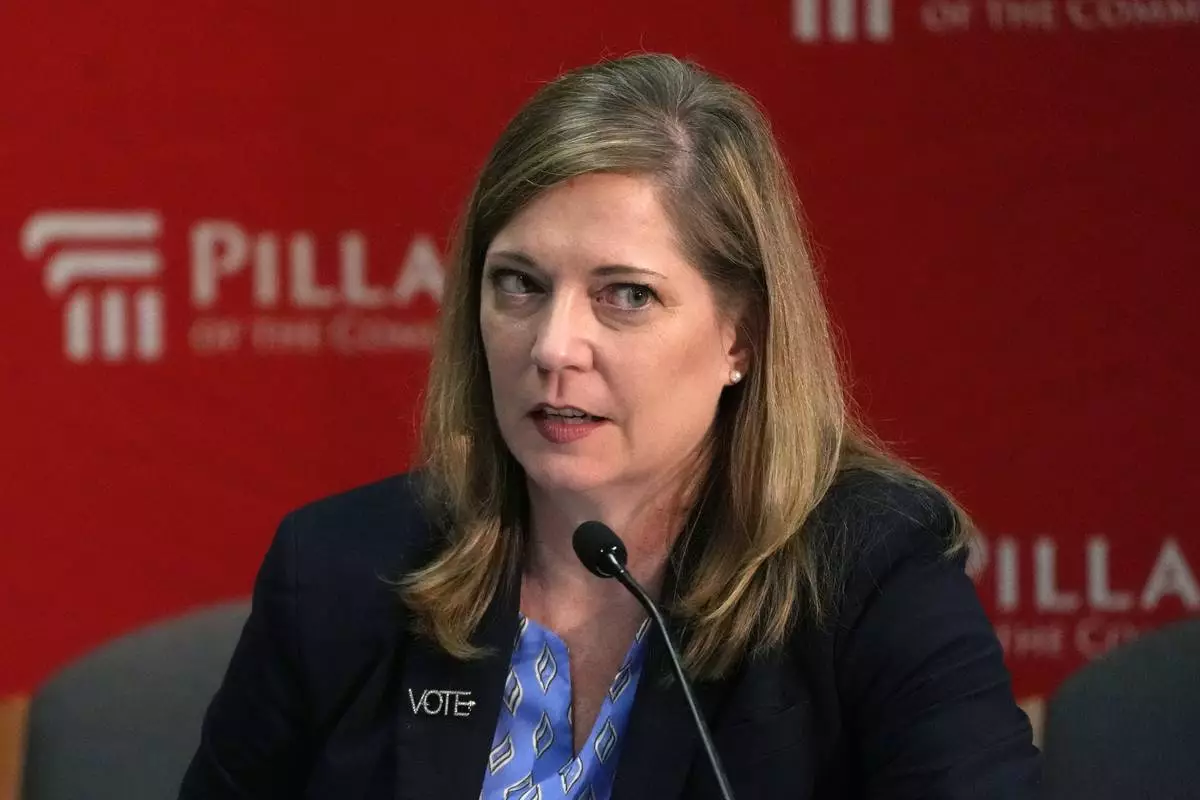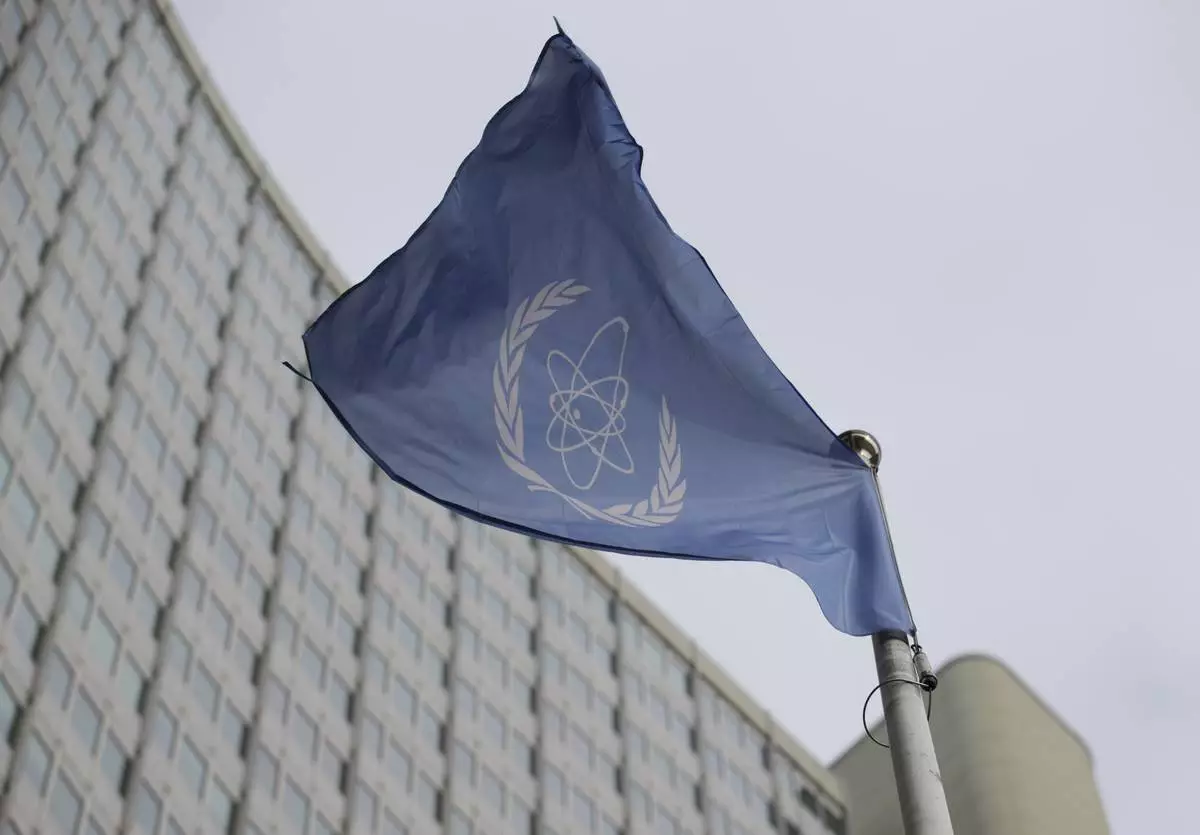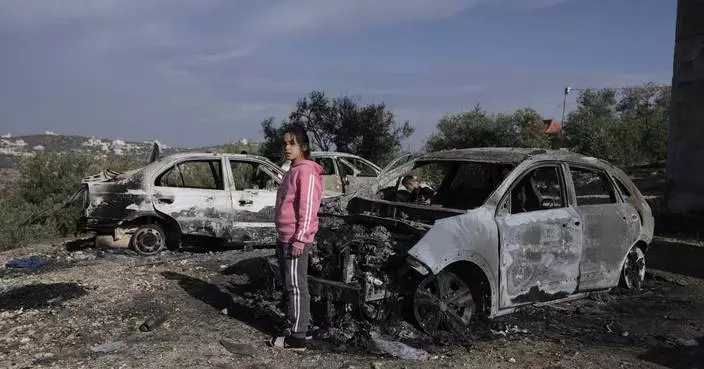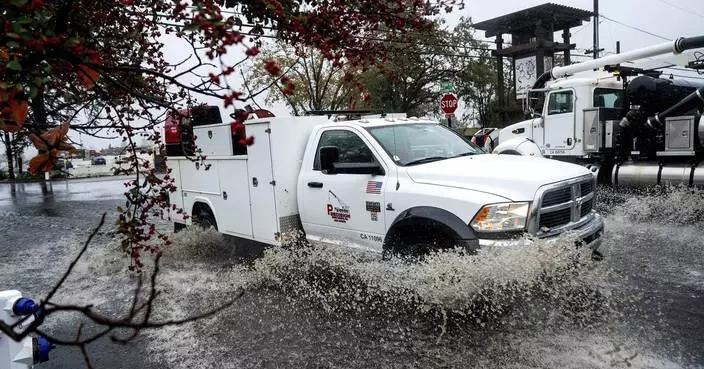RALEIGH, N.C. (AP) — The North Carolina State Board of Elections' top administrator asked a powerful legislator on Thursday to retract a comment that he made suggesting this month's results were being manipulated, saying it could lead to threats against local election workers.
“You are a top leader of our state government. What you say matters,” Karen Brinson Bell, the board’s executive director, wrote state Senate leader Phil Berger in response to his words from Wednesday. “When you tell your fellow citizens that an election is being conducted fraudulently, they listen.”
Berger, a Republican, was speaking to reporters following the final passage of a bill that in part would shift next year the authority to appoint the State Board of Elections from the governor to the state auditor. The new governor in 2025 will remain a Democrat in Josh Stein, while the next auditor will be a Republican. Changes also would likely filter down to county elections boards.
Republicans have expressed frustration about a state Supreme Court race where GOP candidate Jefferson Griffin was leading on election night. But a 10,000-vote deficit for Democratic incumbent Allison Riggs was eliminated as county boards added qualifying provisional and absentee ballots to the totals. Griffin, now trailing, asked for a recount now underway and has filed protests.
Without mentioning the court race by name or specifics of electoral influence, Berger told reporters that “we're seeing played out at this point another episode of ‘Count Until Somebody You Want to Win Wins.’"
In the letter, first reported by North Carolina Public Radio, Brinson Bell wrote that Berger's accusation “has absolutely no basis in fact,” and that county boards, where hundreds of Democrats and Republicans serve, "were duty-bound to count eligible provisional and absentee ballots" before last Friday's canvass. Some did not finish their work until this week.
The legislation also would move up the deadlines so that election officials finish counting outstanding ballots more quickly.
Berger’s office didn’t immediately respond to an email seeking comment on Brinson Bell’s letter — an unusual communication by an agency head to one of the state’s most influential politicians.
Brinson Bell told Berger that “baseless accusations of wrongdoing” over the 2020 elections led election administrators to leave their profession and bring emotional stress, too.
“I fear for the people running elections in this state, including in your own community, that some misguided people will conclude from your statements that actions must be taken, perhaps through the use of threats or violence,” Brinson Bell said.
The state board and county boards, while bipartisan, are controlled by Democrats. A Democratic state board first hired Brinson Bell for the job in 2019. Her future at the post may be jeopardized should the bill moving state board appointing power to Republican Auditor Dave Boliek be enacted and avoids being struck down by courts. Republican legislators have previously expressed displeasure at some of Brinson Bell's actions.
Berger said Wednesday that he wants a board that “functionally operates in a way that is just counting the votes, not pulling for one side or the other.”
Logistically, elections went relatively well in the battleground state won by Republican Donald Trump, despite disruptions caused by Hurricane Helene's historic flooding. The General Assembly passed legislation providing flexibility to 25 western counties affected most by the storm, leading to altered early-vote sites and schedules. A handful of Election Day precincts set up shop in tents.

FILE - North Carolina Executive Director of the State Board of Elections Karen Brinson Bell participates in an election forum, Sept. 19, 2024, in Ann Arbor, Mich. (AP Photo/Carlos Osorio, File)
VIENNA (AP) — The U.N. nuclear watchdog’s board on Thursday condemned Iran for failing to cooperate fully with the agency, the second time it has done so in just five months.
The International Atomic Energy Agency also called on Tehran to provide answers in a long-running investigation into uranium particles found at two locations that Tehran has failed to declare as nuclear sites.
Nineteen members of the IAEA board voted for the resolution, while Russia, China and Burkina Faso opposed it, and 12 abstained and one did not vote, according to diplomats who spoke on condition of anonymity to describe the outcome of the closed-doors vote.
The resolution was put forward by France, Germany and Britain, supported by the United States. It comes at a critical time, ahead of Donald Trump’s return to the White House.
Trump’s first term in office was marked by a particularly tense period with Iran, when the U.S. president pursued a policy of “maximum pressure” against Tehran. In 2018, Trump unilaterally withdrew America from Iran’s nuclear deal with world powers, and imposed even harsher sanctions that have since hobbled Iran's economy further.
The resolution comes on the heels of a confidential report earlier this week in which the IAEA said Iran has defied international demands to rein in its nuclear program and has increased its stockpile of uranium enriched to near weapons-grade levels.
That report, seen by the AP on Tuesday, said that as of Oct. 26, Iran has accumulated 182.3 kilograms (401.9 pounds) of uranium enriched up to 60%, an increase of 17.6 kilograms (38.8 pounds) since the last IAEA report in August. Uranium enriched at 60% purity is just a short, technical step away from weapons-grade levels of 90%.
The resolution approved on Thursday requires the IAEA to now produce a “comprehensive and updated assessment” of Iran’s nuclear activities, which could eventually trigger a referral to the U.N. Security Council to consider more sanctions on Tehran.
In a joint statement issued after the approval of the resolution, the Atomic Energy Organization of Iran and the Iranian foreign ministry condemned the passing of the resolution, saying that Iran’s nuclear chief Mohammad Eslami has issued orders to launch new and advanced centrifuges, powerful machines that spin rapidly to enrich uranium.
In the past, the IAEA has named two locations near Tehran — Varamin and Turquzabad — where there have been traces of processed uranium, according to IAEA inspectors. Thursday’s resolution honed in on those locations, asking Tehran to provide “technically credible explanations” for the presence of the uranium particles at the sites."
The IAEA has urged Iran to also provide answers about the origin and current location of that nuclear material in order for it “to be in a position to provide assurance that Iran’s nuclear program is exclusively peaceful.”
Western officials suspect that the uranium traces discovered by the IAEA could provide evidence that Iran had a secret nuclear weapons program until at least 2003. Tehran insists its program is peaceful.
One of the sites became known publicly in 2018 after Israeli Prime Minister Benjamin Netanyahu revealed it at the United Nations and called it a clandestine nuclear warehouse hidden at a rug-cleaning plant.
Iran denied that, though IAEA inspectors later found the man-made uranium particles there.
While the number of sites about which the IAEA has questions has been reduced from four to two since 2019, lingering questions have been a persistent source of tensions.
On the subject of Varamin, the IAEA said that inspectors believe Iran used the site from 1999 until 2003 as a pilot project to process uranium ore and convert it into a gas form, which then can be enriched through spinning in a centrifuge. The IAEA said buildings at the site had been demolished in 2004.
Turquzabad, the second location, is where the IAEA believes Iran brought some of the material from Varamin amid the demolition, though it said that alone cannot “explain the presence of the multiple types of isotopically altered particles” found there.
Thursday’s resolution before the 35-member board at the IAEA headquarters in Vienna, called on Tehran to explain the presence of the uranium particles at Varamin and Turquzabad, inform the U.N. nuclear watchdog about the current whereabouts of that nuclear material, and grant access to IAEA inspectors to all Iranian nuclear locations.
A draft of the resolution was seen by the AP.
Tehran continues to maintain that its nuclear program is solely for peaceful purposes and has told the IAEA that it has declared all of the nuclear material, activities and locations required under a so-called Safeguard Agreement it has with the IAEA.
There was no immediate comment from Tehran although Iranian officials have vowed to retaliate immediately if a resolution is passed. In the past, Tehran has responded to IAEA resolutions by stepping up its nuclear activities.
The resolution also requires IAEA director general Rafael Grossi to provide an updated assessment of Iran’s nuclear program — including the possible presence of undeclared nuclear material at the two locations — by spring 2025 at the latest.
The assessment could be a basis for possible further steps by European nations, diplomats said, leading to potential escalation in tensions between Iran and the West. It could also provide a basis for European countries to trigger sanctions against Iran ahead of October 2025, when the original 2015 Iran nuclear deal expires, the diplomats said.

FILE - The flag of the International Atomic Energy Agency flies in front of its headquarters during an IAEA Board of Governors meeting in Vienna, Austria, on Feb. 6, 2023. (AP Photo/Heinz-Peter Bader, File)











